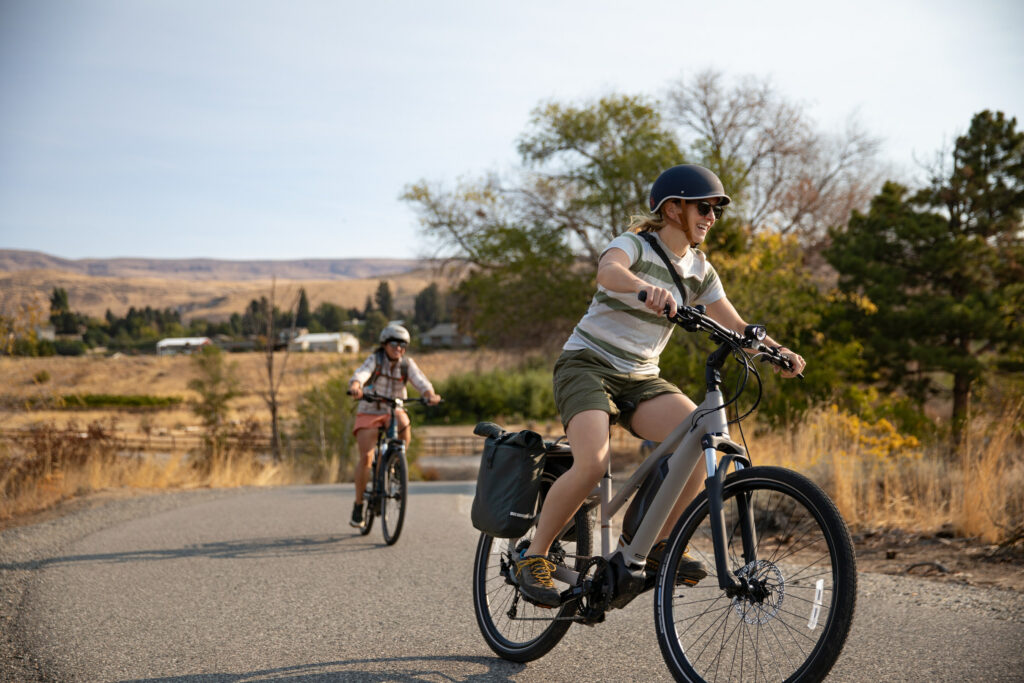REI Co-op is expanding its e-bike assortment, advocating for clear regulations and improved access and education to ensure consumer benefit when purchasing e-bikes. In 2021-2022, e-bike sales at the co-op jumped +14% mirroring the rest of the industry.
“E-bikes are here to stay. They’re fun, and make cycling possible for many people who may otherwise may not be able to bike for transportation or recreation,” said Gautham Rao, divisional vice president for activity at the co-op. “They can help more riders overcome challenges presented by topography, trip distance, lack of time or physical limitations.”
To serve this growing consumer base, REI now offers four e-bike models through its in-house Co-op Cycles line. The newest range, Co-op Cycles Generation e electric bikes (Gen e) debuted in June 2022 as a lifestyle-oriented model designed to carry cargo over varied terrains.

This year, REI will bring in new road e-bikes and e-mountain bike models from its in-house Co-op Cycles brand as well as many other brand partners, plus in-shop maintenance, classes and guidance to keep e-bikes working well. Every e-bike purchased at REI comes with coast-to-coast support across the country, including free flat fixes and 20% off shop services, and two years of free adjustments for REI Co-op members; non-REI members get one year of free adjustments.
The co-op’s e-bike focus extends beyond new products and seeks to deepen customer relationships through service programs, guided trips and educational resources. Through REI’s Experiences, the co-op offers e-bikes for no additional charge on its cycling adventure trips including the San Juan Islands, Death Valley, Yellowstone, Glacier, Moab, Arches and Grand Junction.
Customers can also find e-bike resources on REI.com through its Expert Advice e-bike-related articles, with various resources on “how to choose an e-bike,” “how to transport an e-bike with a car rack,” “which accessories are best to complete their cycling kits,” and more.
As for creating better e-bike access, the co-op is engaging its community through the REI Cooperative Action Network. Through the initiative, REI members are encouraged to take climate action by sending a pre-written letter to their state Congress representative. In this case, the co-op community is working to encourage Congress to pass the e-bike act, which would offer a 30% tax credit of up to $1500 on the purchase of new e-bikes and help make climate friendly transport more affordable for everyone.
The co-op is also partnering with industry groups and cycling nonprofits to support cycling infrastructure improvements.
Although e-bikes are allowed on many trails across the country, they still are not allowed everywhere. The co-op recommends riders educate themselves on where e-bikes are allowed, and encourages riders to review resources such as People For Bikes Ridespot; Trailforks; TrailsAreCommonGround.org; specifically, the guide on natural surface trails identification guide; and MTB Project.
